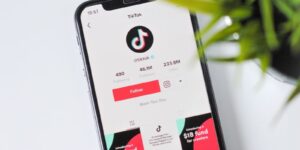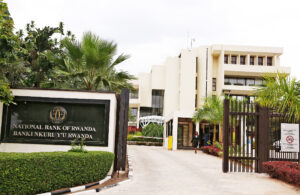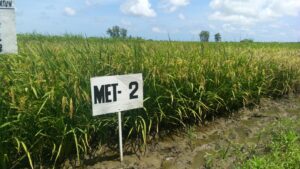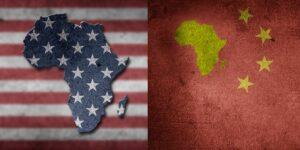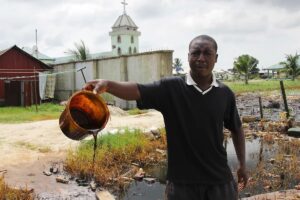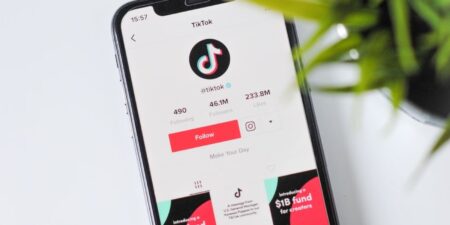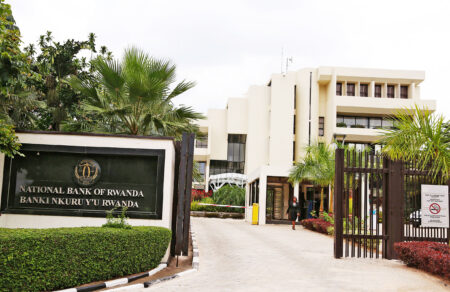- Empowering the Future: Humanity Protocol’s Dream Play Initiative
- TikTok Community Guidelines update aims to curb hate speech and misinformation
- Rwanda sees 39% surge in bank borrowers as Sacco and MFI loan uptake declines
- Kenya Ports Authority wins dispute case over cargo release
- Why Africa can reap billions from digital economy
- Africa private capital deals drop 28 per cent amid global economic turmoil
- Saudi Islamic Development Bank to the rescue of Uganda with $295 million loan
- Reshaping the future of sustainable food systems in Africa
Opinion
- Artificial intelligence in Africa can potentially propel the fintech industry into a new era of financial inclusion.
- AI tools can analyse data from client discussions, producing legal documents in simple language and at a fraction of what it would typically take to draft a contract.
- Banks, for example, can make their services more affordable to their customers by rolling out AI-powered chatbots to handle routine queries while sparing them from having to travel to a bank branch.
It’s difficult to imagine a time before the widespread adoption of mobile technology in Africa – particularly where financial services are concerned. For millions of unbanked people, transactions were limited to cash, postal services or even the barter system.
Now, in much the same way as mobile payments completely disrupted the status quo, AI has the potential to propel the fintech industry into a new era of financial inclusion. And perhaps most exciting …
- One of the most important ways a fintech can listen to its customers is to gauge how they engage with its products.
- Having a deep understanding of customer needs results in innovative solutions.
All around the world businesses are pulling out the stops to achieve growth in what can best be described as challenging economic conditions. Africa is no exception. The continent has long been recognised for its immense potential, and as such businesses across sectors are investing heavily into the continent.
Advancements in technology make serving the unbanked and underserved populations in Africa more viable than ever before. However, that does not mean growth comes easily. It is a hyper competitive and complex environment where genuinely understanding your customer is key to growth.
Even with this textbook understanding, there is a strong urge to take the “build it and they will come” approach because we can get caught up …
- Namibia is fortunate to benefit from the experiences of other oil- and gas-producing states.
- The country’s oil and gas sector is still looking forward to reaching the production phase, but S&P Global analysts don’t anticipate Namibia’s first oil production will come until 2029.
- Further, the country’s first gas-to-power project is scheduled to begin in 2027.
Namibia’s energy sector is still looking forward to reaching the production phase — S&P Global analysts don’t anticipate Namibia’s first oil to come until 2029, and the country’s first gas-to-power project is scheduled to begin in 2027.
Ohio State Team Jersey
ohio state jersey
Ohio State Team Jersey
asu jersey
ohio state jersey
Iowa State Football Uniforms
detroit lions jersey
micah parsons jersey
micah parsons jersey
Iowa State Football Uniforms
fsu football jersey
OSU Jerseys
custom football jerseys
asu jersey
Before Namibia achieves these hotly anticipated milestones, Namibian lawmakers can implement thoughtful, …
In this column called “The Indicator,” we will be taking an economic or financial statistic from East Africa and breaking it down into bite-sized nuggets of knowledge for investors.
This month’s indicator figure is 597,028,294
597,028,294 what?
597,028,294 US dollars is the projected cumulative annual cost of cyber security attacks across East African Community (EAC) countries for 2020 as extrapolated from a 2017 study “Demystifying Africa’s Cyber Security Line”.
What is a cyber security attack?
A cyber security attack often called a “hack” is when a nefarious individual or group uses a computer to invade the computer or the computing network of a person or company.
Cyber attacks can come from external attackers such as cybercriminals seeking to steal money, damage the reputation, or block access to computing resources in order to extort ransom money from a company. Cyber attacks can also come from “insiders” — frustrated current or former …
President Obama’s chief of staff, Rahm Emanuel once said “you never want a serious crisis to go to waste. It provides the opportunity to do things that were not possible to do before”.[1] When the COVID-19 crisis hit the global north the fear was that it would be most devastating in Africa with Bill Gates predicting that ten million lives would be wiped out by the virus.[2] But he was wrong because African leaders did what was not possible before – they locked down their countries and instituted adherence to the protocols of social distancing and washing of hands. These preventive measures and the sudden change of behavior slowed down the virus’s serious impact in Africa. According to Harvard Health preventing the spread of the virus is rooted in behavioral change.[3] Starting up new behavior in the new normal was what the US and Europe could not …
As African oil and gas countries struggle with Covid-19’s devastating impact on demand, two international groups seem to be celebrating it.
Earlier this month, the Organisation for Economic Co-operation and Development (OECD) and the International Energy Agency (IEA) described the low oil prices caused by the pandemic as a “golden opportunity” for governments to phase-out fossil fuel support and usher in an era of renewable energy sources.
“Subsidising fossil fuels is an inefficient use of public money and serves to worsen greenhouse emissions and air pollution,” OECD Secretary-General Angel Gurría said in a joint OECD-IEA statement. “While our foremost concern today must be to support economies and societies through the Covid-19 crisis, we should seize this opportunity to reform subsidies and use public funds in a way that best benefits people and the planet.”
I would argue that the OECD and IEA don’t necessarily know what’s best for the people …
A few weeks ago, I was positively surprised to see a sign in a sports shop in Karen, stating that they no longer accepted cash, only cards and mobile money. Until that time, “no-cash” policies in shops was something I had only seen in the Scandinavian countries, and even there, it is still rare. Since the start of the pandemic, however, digital-only payment policies have proliferated in Kenya, and are starting to become commonplace.
Cash as a payment method has been in a slow, terminal decline in Kenya for many years, but it has managed to survive, until now.
Kenya has long been a forerunner in terms of digital payments in Africa. Even as far back as in the Moi era, many shops and supermarkets, most upscale restaurants, and virtually every hotel accepted Visa and Mastercard. This was at a time when Ethiopia had one single bank branch in the …
Brent crude oil’s return to a $40/b handle has so far proved to be short-lived. During the past week the oil market has continued to move higher in the belief that the OPEC+ group of producers would extend a deal to curb production. Thereby continuing their support for the market while demand slowly recover.
Saudi Arabia and Russia, the leaders of the group, have preliminary agreed on a one-month extension of existing OPEC+ cuts. The problem, however, is once again what to do with countries that fail to deliver the promised cuts. Moscow, usually a laggard in previous deals, has almost reached its target of 8.5 million barrels/day. That has left the group in a stronger position to demand compliance from others.
Once again the focus has returned to Iraq and Nigeria, OPEC’s notorious cheaters, who for years now have failed to deliver fully on any of the previous …
Any predictions regarding what economies are going to look like after this crisis, have to be taken at face value by the best buyer. In other words, I believe that any forecast carries a great deal of speculation, as we are sailing uncharted waters and the last few months have proven that, so to compare the current situation to any past crisis is not very efficient to say the least.
Nevertheless, speculation is what we have at hand, and much like everyone else locked up in quarantine, I have been observing the developments and formulating some theories. I’ve also had the privilege of speaking to some very insightful people as I moderated and shared my opinion in a number of webinars and other online platforms, particularly as to the key changes African economies may face in this new reality.
It goes without saying that with over 50 countries on the …

